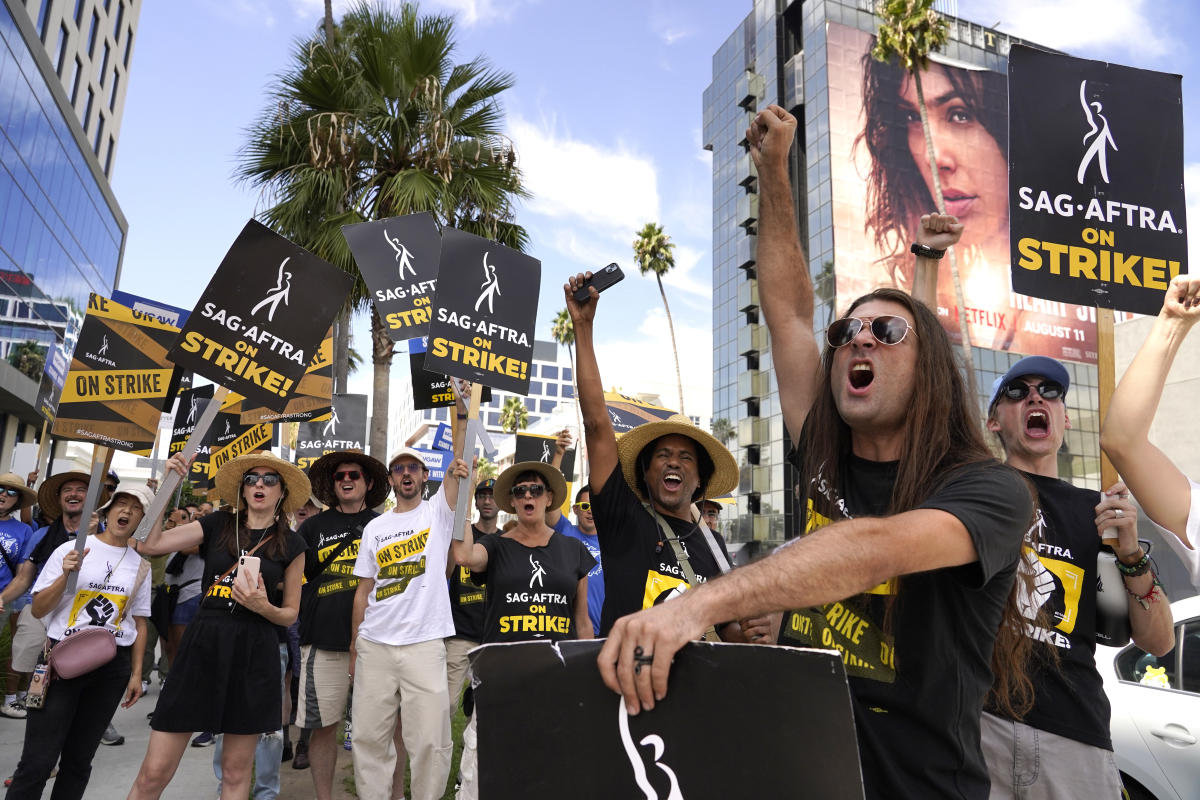The US economy added a stunning 336,000 jobs in September, nearly double the 170,000 economists surveyed by Bloomberg had expected — but the Hollywood strikes registered yet another hit to the jobs report last month as the writers strike reached its conclusion while the actors strike is still ongoing.
According to data released by the Bureau of Labor Statistics Friday morning, employment in motion picture and sound recording industries decreased by another 7,000 after falling by 17,000 in August, “reflecting the impact of labor disputes.”
Since the strikes first began in May, employment in those industries has declined by 45,000.
Striking Hollywood actors will meet with studios again on Friday as the two sides restart negotiations on the heels of an epic conclusion to the writers strike last week.
SAG-AFTRA — the union that represents approximately 160,000 actors, announcers, recording artists, and other media professionals around the world — began a strike on July 14 after failing to negotiate a deal with the Alliance of Motion Picture and Television Producers (AMPTP), which bargains on behalf of the major studios including Warner Bros. (WBD), Disney (DIS), Netflix (NFLX), Amazon (AMZN), Apple (AAPL), NBCUniversal (CMCSA), Paramount (PARA), and Sony (SONY).
Similarly to the writers, SAG-AFTRA is fighting for more protections surrounding the role of artificial intelligence in media and entertainment in addition to better pay, improved working conditions, and higher streaming residuals as more movies and TV shows go directly to streaming.
The writers union, Writers Guild of America (WGA), had been on strike for nearly 150 days prior to its studio deal. The guild was successful in achieving many of its demands, which included increased regulations surrounding the use of artificial intelligence, minimum staffing requirements, a boost to streaming residuals, and more.
Industry watchers largely expect SAG-AFTRA to reach a similar conclusion, although the union made it clear that, while it will review the WGA’s agreement, the guild is ultimately committed to reaching a deal that’s specific to its member base.
According to estimates from the Los Angeles County Economic Development Corp., the 2007-2008 writers strike cost the Los Angeles County economy a whopping $2.5 billion. That likely will double this time around.
Kevin Klowden, chief global strategist at the Milken Institute, estimated the nearly five-month-long writers strike, coupled with the ongoing actors strike, will cost the national economy $5 billion-plus.
“The main thing we’re really factoring into it is the lost wages,” Klowden previously told Yahoo Finance Live. Klowden noted California will be impacted, but also other popular filming locations like New York, Atlanta, Albuquerque, and Pittsburgh.
Alexandra Canal is a Senior Reporter at Yahoo Finance. Follow her on Twitter @allie_canal, LinkedIn, and email her at alexandra.canal@yahoofinance.com.
Click here for the latest stock market news and in-depth analysis, including events that move stocks
Read the latest financial and business news from Yahoo Finance





